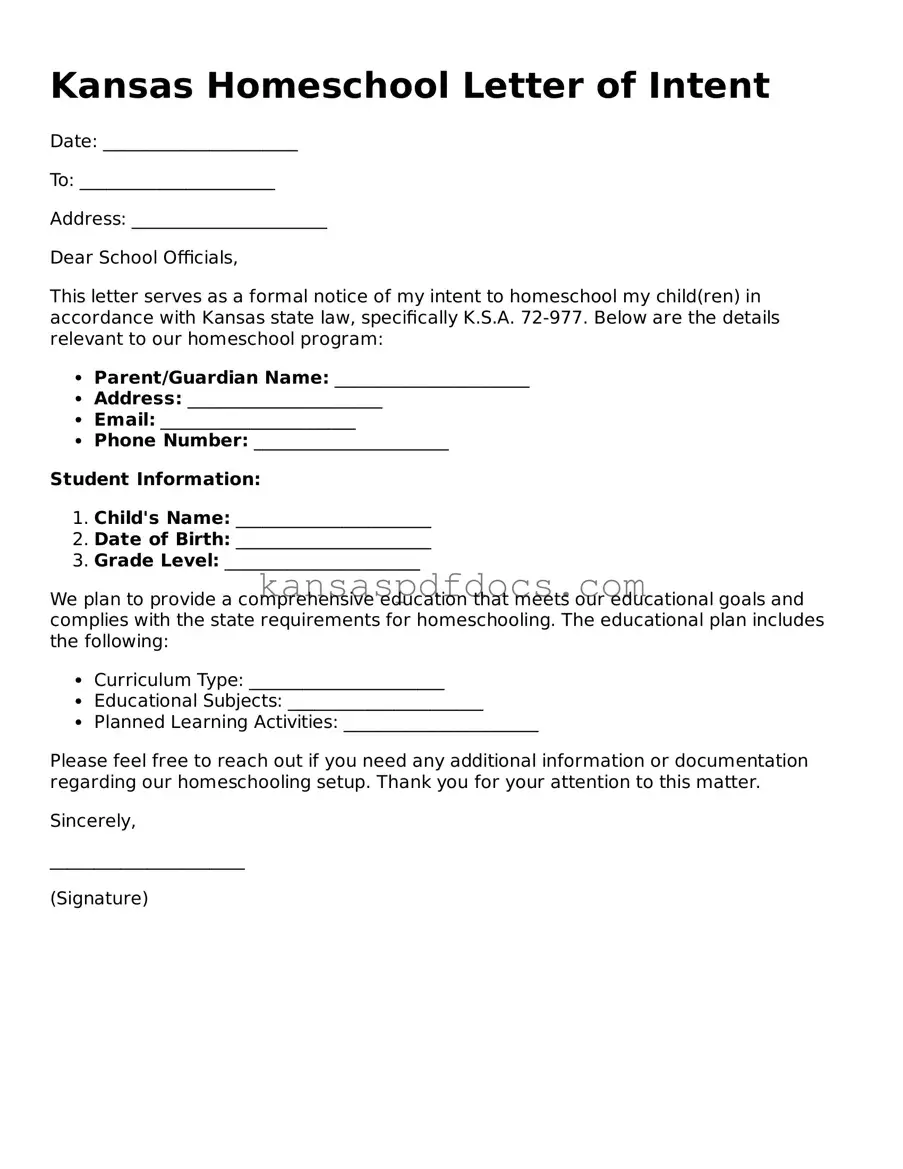Valid Homeschool Letter of Intent Template for Kansas State
The Kansas Homeschool Letter of Intent form is a crucial document that parents must submit to officially declare their intention to homeschool their children. This form serves as a notification to the local school district, ensuring compliance with state regulations. Understanding the requirements and process for submitting this form can help parents navigate their homeschooling journey with confidence.
Access This Form Now

Valid Homeschool Letter of Intent Template for Kansas State
Access This Form Now
Your form isn’t ready yet
Edit and finalize Homeschool Letter of Intent online without printing.
Access This Form Now
or
Get PDF Form
